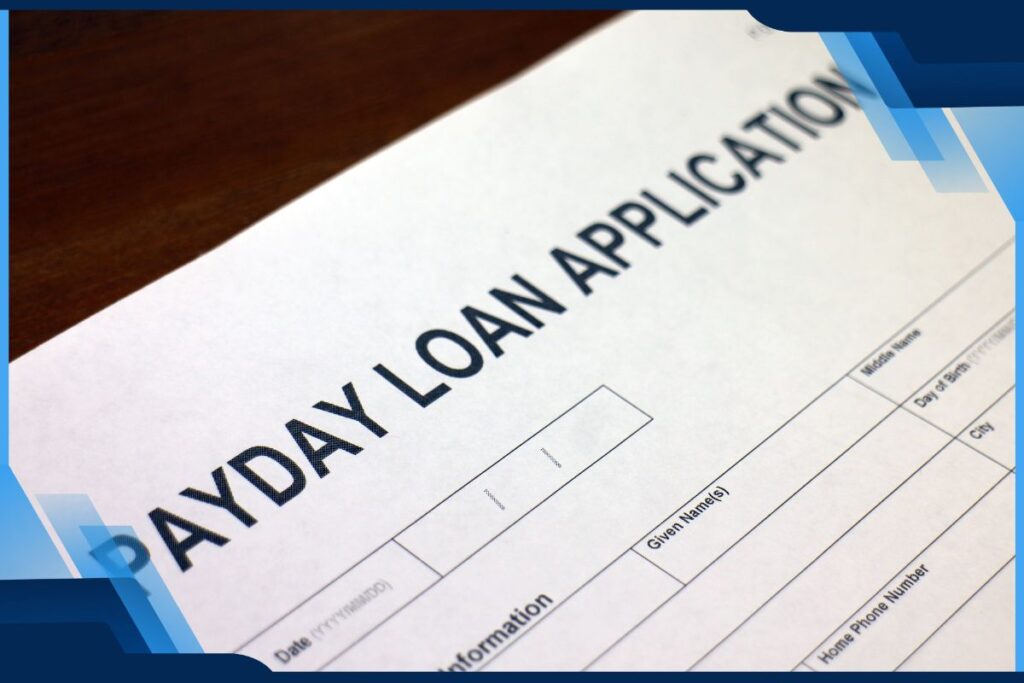Pros and cons of payday loans in Australia

Payday loans are short-term, high-cost loans designed to provide quick cash to borrowers in urgent financial situations. In Australia, these loans are commonly known as small amount credit contracts (SACCs) and are regulated by the National Consumer Credit Protection Act (NCCP Act). While payday loans can be a lifeline in emergencies, they also carry significant risks that can lead to financial distress if not managed carefully.
This article explores the pros and cons of payday loans in Australia, including their benefits, potential pitfalls, and alternative options.
What are payday loans in Australia?
A payday loan in Australia is a short-term loan of up to $2,000, typically repaid within 16 days to 12 months. These loans are available to individuals who need fast cash but may not qualify for traditional bank loans due to poor credit history or low income.
Payday lenders operate online and in physical locations, offering fast approvals, often within a few hours. However, they come with high fees and interest rates, making them one of the most expensive borrowing options.
Regulations on payday loans in Australia
The Australian Securities and Investments Commission (ASIC) regulates payday loans under the NCCP Act. Key regulations include:
- A 20% establishment fee and 4% monthly fee (on loans up to $2,000).
- A maximum loan amount of $5,000 with repayment terms ranging from 16 days to 24 months.
- Lenders cannot charge interest on payday loans but can impose fees.
- A limit on fees for borrowers who receive Centrelink benefits, ensuring repayments do not exceed 20% of their income.
- A ban on lenders offering multiple payday loans to the same borrower if it causes financial hardship.
Despite these protections, payday loans remain a high-cost option that should be used with caution.
Pros of payday loans in Australia
While payday loans are expensive, they offer several advantages that make them attractive in urgent situations.
1. fast access to cash
Payday loans are one of the quickest ways to access emergency cash. Many lenders approve applications within 30 minutes, and funds can be deposited on the same day. This makes them ideal for urgent expenses such as medical bills, car repairs, or overdue rent.
2. no credit check required
Most payday lenders in Australia do not conduct credit checks, making these loans accessible to individuals with bad credit or a limited credit history. Instead, approval is based on income and ability to repay.
3. minimal documentation
Unlike traditional bank loans, payday loans require minimal paperwork. Applicants usually only need:
- Proof of income (such as payslips or Centrelink statements).
- Australian bank account details.
- Valid identification.
This simple process makes payday loans easy to obtain.
4. flexible spending
Borrowers can use payday loans for any expense, including rent, bills, car repairs, or emergency purchases. There are no restrictions on how the funds must be used.
5. short repayment period
The short loan term (from 16 days to 12 months) helps borrowers avoid long-term debt. Unlike credit cards, which can accumulate interest indefinitely, payday loans have a clear repayment schedule.
6. accessible to low-income earners
Even those on Centrelink payments may qualify for payday loans, as long as their repayments do not exceed 20% of their income. This makes them an option for individuals with limited borrowing options.
Cons of payday loans in Australia
Despite their benefits, payday loans come with significant downsides. Borrowers should carefully consider these risks before applying.
1. high fees and costs
While payday lenders in Australia cannot charge interest, they impose high fees, including:
- 20% establishment fee on loans up to $2,000.
- 4% monthly fee for the duration of the loan.
- Late payment and dishonour fees.
For example, if you borrow $1,000, you will repay $1,480 over six months, making payday loans one of the most expensive borrowing options.
2. risk of debt cycles
Many borrowers struggle to repay payday loans on time, leading to loan rollovers or taking out multiple loans. This creates a cycle where borrowers continuously pay fees without reducing their principal debt.
3. strict repayment schedule
Payday loans require fixed repayments, which can be challenging for individuals with irregular income. Missing a payment can lead to additional fees, late charges, and financial stress.
4. potential bank account overdrafts
Since payday lenders require direct debit repayments, borrowers risk overdrawing their bank accounts if they do not have sufficient funds. This can lead to overdraft fees from banks and further financial strain.
5. limited loan amounts
Payday loans in Australia are capped at $5,000, making them unsuitable for larger financial needs. Borrowers needing more substantial amounts may need to seek alternative financing.
6. impact on credit score
While payday lenders do not always check credit scores, they may report defaults to credit agencies. Failure to repay can damage credit ratings, making it harder to qualify for future loans or mortgages.
7. predatory lending practices
Some payday lenders use aggressive marketing and misleading loan terms to target vulnerable individuals. Borrowers should always choose ASIC-licensed lenders and carefully read the terms before signing a loan agreement.
Alternatives to payday loans in Australia
Given the risks, borrowers should explore alternative options before considering a payday loan.
1. no-interest loans scheme (NILS)
The NILS program offers interest-free loans of up to $2,000 for essential expenses such as medical bills, education, or car repairs. It is available to low-income Australians and is a much safer alternative.
2. stepup loans
StepUp loans, backed by Good Shepherd and NAB, provide low-income Australians with low-interest loans up to $3,000 for essential expenses. They have no hidden fees and are a better long-term solution than payday loans.
3. bank overdrafts or credit cards
For short-term financial needs, using a bank overdraft or credit card may be cheaper than payday loans. While interest rates apply, they are generally lower than payday loan fees.
4. employer salary advances
Some Australian employers offer salary advances as an alternative to payday loans. This allows employees to access a portion of their wages early without paying excessive fees.
5. negotiating with service providers
If struggling with bills or rent, contacting utility companies, landlords, or creditors can lead to payment plans or extensions without the need for payday loans.
6. borrowing from family or friends
Although not ideal, asking friends or family for a short-term loan can help avoid the high fees and risks of payday loans.
How to use payday loans responsibly in Australia
If a payday loan is the only option, consider the following:
- borrow only what is necessary – Avoid taking more than needed.
- understand the fees – Read the loan agreement carefully.
- have a repayment plan – Ensure you can repay on time.
- compare lenders – Choose ASIC-licensed lenders with transparent terms.
- avoid multiple loans – Do not take out more than one payday loan at a time.
For more information on payday loans in Australia, visit Moneysmart’s payday loan guide:
🔗 https://moneysmart.gov.au/loans/payday-loans
Payday loans in Australia provide quick financial relief, but they come with high costs and significant risks. While they can be useful for urgent expenses, they should be a last resort. Exploring low-cost alternatives such as NILS, StepUp loans, or salary advances can provide a safer financial solution.
If payday loans are necessary, responsible borrowing and careful planning are essential to avoid long-term financial hardship.
Related content

Car Loans in Australia: Compare the Best Options for Every Budget

How to refinance your mortgage and save money

Loan Interest Rates: Variable vs. Fixed

How to Choose the Best Personal Loan

Types of Loans: A Guide to Making Informed Borrowing Decisions
